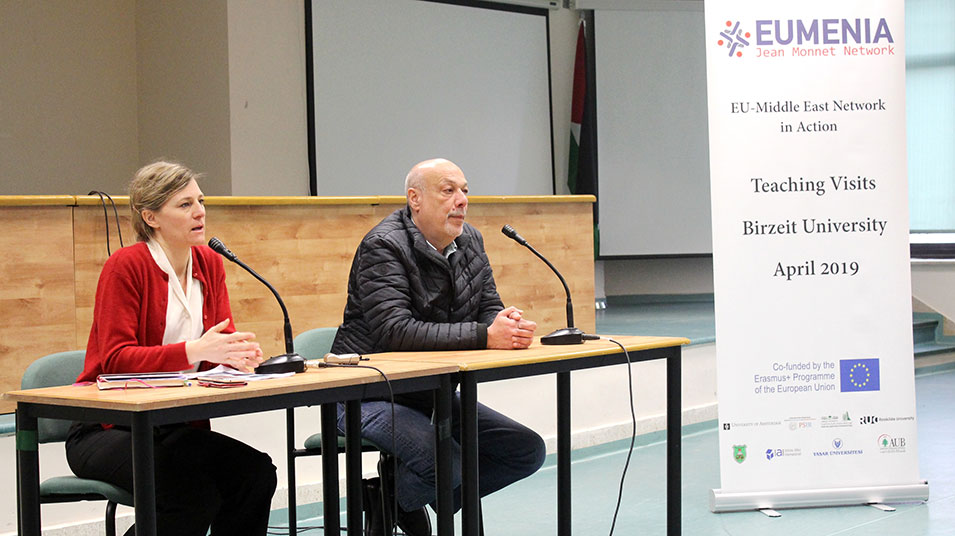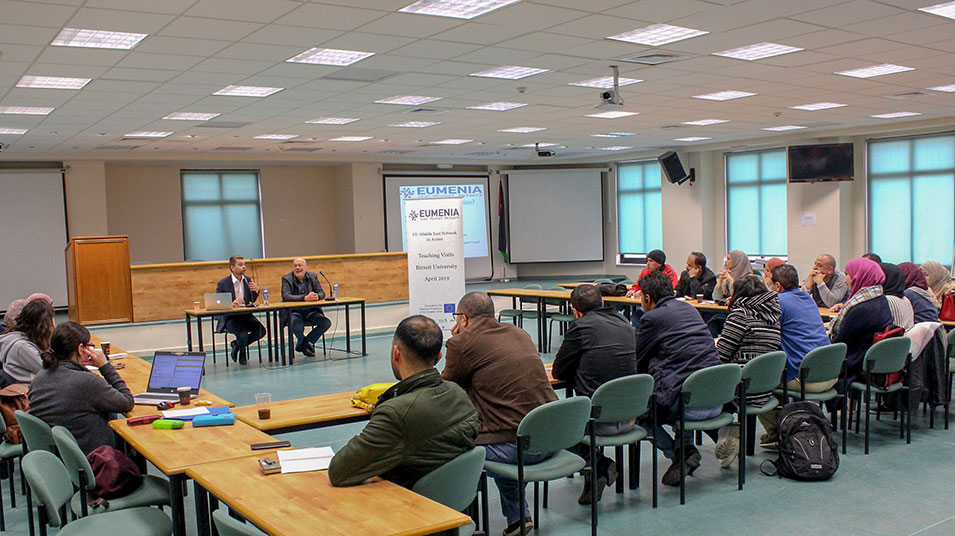Visiting Professors offer lecture series on European Union Foreign Policy
Ibrahim Abu Lughod Institute of International Studies at Birzeit University organized a lecture series on the foreign policy of the European Union, and its stance from the Palestinian-Israeli conflict, featuring the researcher at Istituto Affari Internazionali (IAI) Daniela Huber, and the professor of political science at the University of Amsterdam Dimitris Bouris.
The lecture series is part of the EU-Middle East Network in Action (EUMENIA) project funded by the European Union. It targeted master’s students of international relations, and bachelor students of political science, under the supervision of political science professor Abdul Rahman Haj Ibrahim.
The first lecture, presented by Huber on 18 April 2019, was entitled “The European Union and the Palestinian-Israeli Conflict”. Huber discussed the historical role of Europe towards the conflict, starting from 1948 until today. According to Huber, the European Union’s foreign policy is now limited to foreign aid policy, and issuing political statements about peace talks, the two-state solution and the recognition of the State of Palestine
After the lecture, the participants discussed with Huber the future of the European Union, their continuous funds and aid to Palestinians, and the consequences of the Brexit on the Palestinian cause.
The second lecture, held on 20 April 2019 by Bouris, explored the future of the world’s politics and the current role of the European Union in the international system. He pointed to the dwindling power of the union especially in the aftermath of World War II. Bouris explained this by blaming the American financial plan the “Marshal Plan” that intended to reconstruct Europe after WWII, which has affected the European Union’s power negatively.
The union, according Bouris, has depended on peace and conflict-resolution means to overcome the hostilities between its members. Also, the European Union’s politics has been focused on security and environmental issues, in addition to the European migrant crisis, demographic changes and combating extremism. Bouris presented predicted scenarios on implications of the Brexit, due to the rise of popular parties in Europe, the immigration dilemma and the financial crisis in 2008.
At the end of the lecture, Bouris discussed with the students the accession of Turkey to the European Union. In addition to defining the implications of the rise of the national populist parties and how they mobilize against the European integration, and questioning whether the UK will be participating in the upcoming European elections that will run between 23-26 May 2019.








